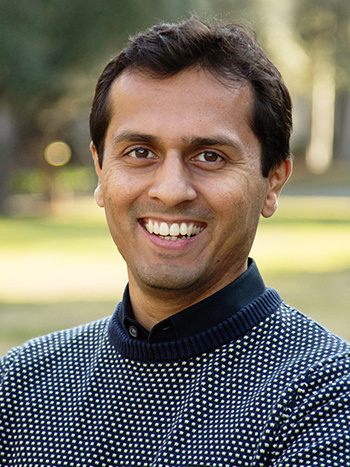
McGovern Institute Special Seminar with Pavan Ramdya
Description
Date: Monday, December 8, 2025
Time: 12:00 pm – 1:00 pm
Location: Seminar Room 3189
Title: Object manipulation and affordance learning in flies
Abstract:
A central goal shared by neuroscience and robotics is to understand how neural systems autonomously learn to manipulate objects in complex real world environments. Although we broadly understand how visual systems segment objects in natural scenes, how humans and animals learn the affordances or action possibilities of these objects remains largely mysterious. In this talk, I will present our work identifying brain regions causally involved in how the fly, Drosophila melanogaster, learns to manipulate novel spherical objects. Through careful behavioral quantification of a large-scale neural silencing screen, we uncover unexpected roles for multiple brain regions in object manipulation, and propose a mechanism in which intrinsic rewards guide motor policy updates reflecting object affordance learning.
Bio:
Pavan Ramdya, Firmenich Next Generation Chair of Neuroengineering, is the Director of the Neuroengineering Laboratory at EPFL in Lausanne, Switzerland. Dr. Ramdya received his PhD in Neurobiology from Harvard University and then performed postdoctoral work in Robotics and Neurogenetics at EPFL and UNIL, then Bioengineering at Caltech. His laboratory aims to draw inspiration from animals in order to design more intelligent and adaptive artificial systems. To accomplish this, they use computational, engineering, genetic, and microscopy approaches to investigate how neural population dynamics, biomechanics, and gene expression sculpt complex limb-dependent behaviors in Drosophila melanogaster. In recognition of his work, he has been awarded an HFSP Career Development Award, a Swiss National Science Foundation Eccellenza Grant, the UNIL Young Investigator Award in Basic Science, and is a member of the FENS-Kavli Network of Excellence.

